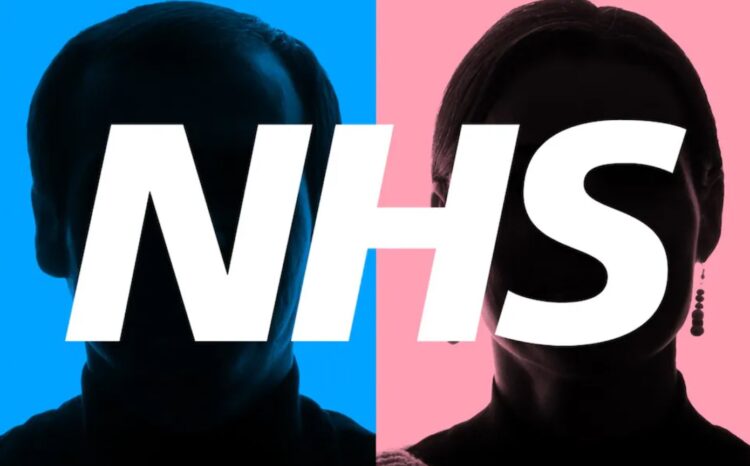Health Secretary Victoria Atkins has announced major changes to the NHS constitution, in a landmark pushback against proponents of gender ideology – like trans activists – who demand adherence to their belief that ‘sex’ is not biological, but fluid – a social construct, just like gender (Telegraph).
The NHS constitution, which sets out the principles and values of the health service and legal rights for patients and staff, was last updated in 2015. It has to be updated at least every 10 years by the Secretary of State. Importantly, all NHS bodies, as well as private and third-sector providers that supply NHS services, are required by law to take it into account when making decisions.
The new constitution will state: “We are defining sex as biological sex.”
Campaigners for women’s rights welcomed this as a “return to common sense”. It comes after years of wrangling and follows accusations that the health service had been captured by gender ideology.
Last year, Equalities Minister Kemi Badenoch raised concerns with the Chair of the Equality and Human Rights Commission (EHRC), Baroness Falkner, about “increasing contestation of how the term ‘sex’ is understood in law and practice” as well as “whether the definition of sex in the Equality Act 2010 is sufficiently clear”. In a move that infuriated trans activists, Baroness Falkner replied with advice backing legal reforms that would guard the rights of biological women in single-sex spaces such as hospital wards.
This shift in governmental thinking is reflected in the new constitution, which makes clear that NHS trusts can no longer pursue ‘trans inclusion’ by referring to women with the aid of descriptors like “chestfeeding” and “people who have ovaries”. Emphasised instead is the importance of “sex-specific” language for ensuring that illnesses and conditions known to impact women differently to men are communicated in a “clear and accurate way” (LBC, Mail, Telegraph).
Over recent years, there has been fierce debate around attempts to reduce the use of the word “woman” in discussions on subjects including pregnancy and childbirth, and any move to do so has provoked ire from gender critical campaigners seeking to resist the linguistic deletion of ‘womanhood’ and the concomitant erosion of women’s hard-won sex-based rights.
Earlier this month, a group of more than 130 MPs, peers, doctors, psychiatrists and academics wrote to the Prime Minister to demand a public inquiry into transgender ideology in schools and the NHS.
Last year, some 1,200 doctors, nurses and health practitioners wrote to NHS bosses and all four chief nursing officers demanding the organisation reinstate the word ‘woman’ in cancer and pregnancy webpages.
The Clinical Advisory Network on Sex and Gender, a group of NHS staff, organised the letter after noticing that at least 19 women’s health pages on the NHS website had shifted to gender-neutral language, and weren’t mentioning ‘women’, either at all or in addition to non-gendered language, including in the guidance on ovarian and uterus cancer, menopause, childbirth and heavy periods.
In their letter, the clinicians provided examples of the type of linguistic erasure in question.
Official NHS guidance for ovarian cancer, for instance, previously began by saying it “is one of the most common types of cancer in women”. Now, this sentence has vanished along with any mention of women.
The NHS overview page on miscarriages previously said: “For most women, a miscarriage is a one-off event, and they go on to have a successful pregnancy in future.” Following the website’s update, the page simply refers to most “people”, not most “women”.
Elsewhere, information about womb cancer used to begin with reference to “the female reproductive system” before going on to note that this type of cancer is “more common in women who have been through the menopause”. Again, the reformulated version contains no reference to females or women.
According to the clinicians’ letter, “NHS messaging” of this kind “shows a lack of concern for women”. The letter continues: “Removal of sex-based language is discriminatory and could leave the NHS open to legal challenge… We call for the reinstatement of sex-based, respectful communication that meets the healthcare needs of women. Specifically, the NHS must use women’s words for women’s bodies and women’s health problems.”
Reacting to news of the proposed changes to the NHS constitution, Maya Forstater, chief executive of gender critical group Sex Matters, said: “The confusion between ‘sex’ and ‘gender’ in official policies like the NHS constitution is what has enabled women’s rights to be trampled over in the name of transgender identities.
“Sex, of course, is a matter of biology, not identity, and it is welcome that the NHS is now spelling this out in relation to single-sex accommodation and intimate care.”
She added: “Clear language, single-sex wards and access to intimate care provided by a health professional of the same sex are crucial to the wellbeing and safety of female patients. They should never have been compromised.”
The changes proposed by Health Secretary Ms Atkins will be subject to an eight-week consultation.
The Government will consider responses from everyone, including the public, clinicians and medical professionals, patients, carers and organisations representing patients and staff and health stakeholders, before publishing the consultation response and the new NHS constitution.






